"One generation of masters" Cao Jinghua, why was it "the person who stole the fire for the slave to the uprising"?
Author:Beijing Evening News Time:2022.08.26
Cao Jinghua is an outstanding revolutionary writer, translator, and educator in our country. He is a close friend of Lu Xun and Qu Qiubai. He has been the pioneer of the Russian and Soviet Revolutionary Literature since the May 4th translation; his translation "Iron Stream", "City and New Year", "The Son of Labor People" and "Defending Ridin" and other works have affected the generation In the Chinese Marxist, the Red Army soldiers scrambled to watch "Iron" during the Long March of the Red Army. Cao Jinghua was also called "the person who stole the fire for the slave to the uprising." He is the first person to substitute vernacular words and modern Chinese literature into Russia and the Soviet Union, and has trained a large number of Sinologists and diplomats for the Soviet Union; he has presided over the teaching of Russian in Peking University for decades, and has cultivated a large number of Russian and Russian culture for New China. Leading cadres and academic talents, most of the translators, researchers and diplomats between Russian literature today are Cao Jinghua's juniors.
This year marks the 125th anniversary of the birthday of Mr. Cao Jinghua and the 35th anniversary of the death of Mr. Cao Jing. Recently, the author went to Mr. Lu's hometown of Cao Jinghua's hometown to interview to keep his memory.
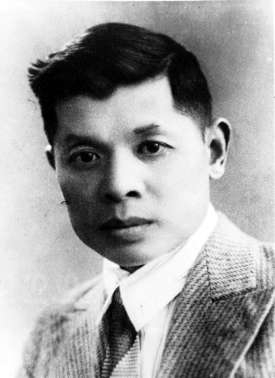
Cao Jinghua
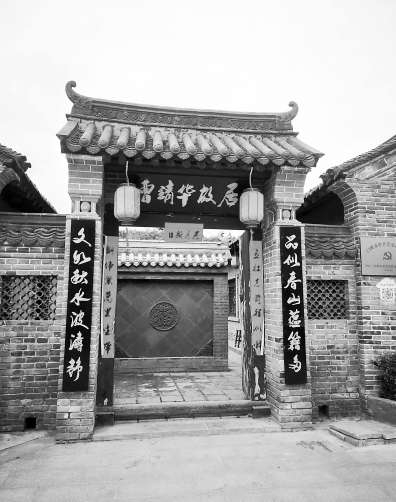
Cao Jinghua Former Residence
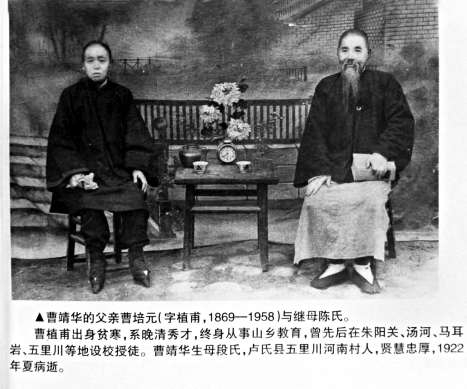
Cao Jinghua's father Cao Peiyuan (Zi Zhifu) and stepmother Chen's
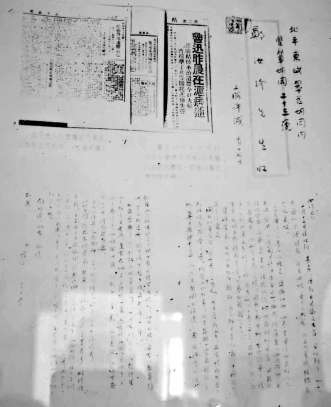
Lu Xun wrote to Cao Jinghua on October 17, 1936. This is the last letter written by Lu Xun before his birth. Two days later (19th), Lu Xun died of illness
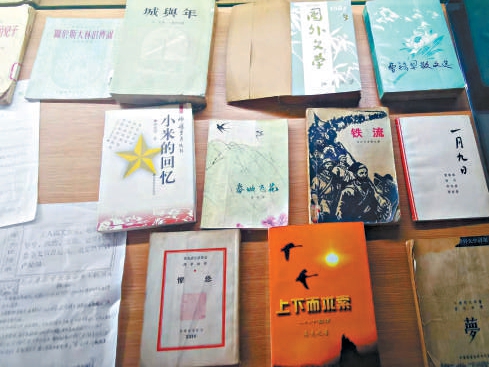
The works such as "Iron Stream", "City and New Year" and "Memories of Xiaomi" exhibited by Cao Jinghua's former residence
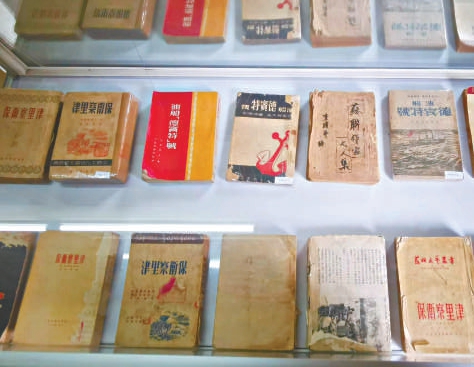
Cao Jinghua's translation of "Defending Charliejin" and other works are constantly being reprinted. It is still published so far, which has affected generations of readers
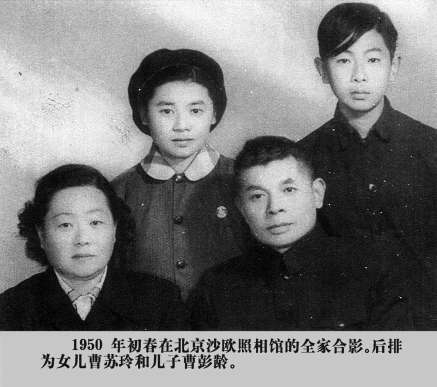
In the early spring of 1950, at the family of Shawu Photo Museum in Beijing, the rear was the daughter Cao Suling and his son Cao Pengling
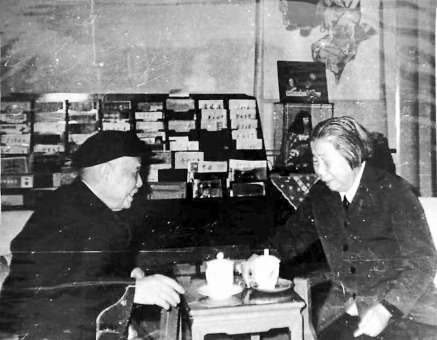
Cao Jinghua and Deng Yingchao
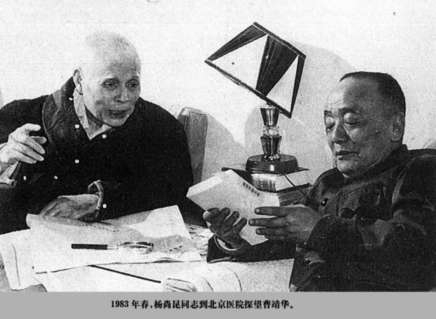
In the spring of 1983, Comrade Yang Shangkun visited Cao Jinghua at Beijing Hospital
Cao Jinghua was still working hard when he was hospitalized in his later years
Father and son two -generation education legend
At the turn of the century, Cao Jingfu's father Cao Zhifu set up education here, cultivated talents, and fell in love with the villagers in the local township. However, the deeds of the teachings of Mr. Cao Zhifu were really spread because of Mr. Lu Xun. In 1934, when Cao Zhifu taught in the mountainous area for 45 years, the students in Lu's County wanted to teach him for his monument. He hoped that Mr. Cao Zhifu's son Cao Jinghua would write inscriptions. Then he told Mr. Lu Xun's deeds of his father. Lu Xun was greatly moved after hearing it, respecting his heart, and readily the writing. Although Lu Xun was sick at the time, he still wrote "Mr. Lu's Monument in Henan" within eight days, and included this article into his masterpiece "Jie Ting's Essay Collection". According to research, this is the only inscription in many articles in Mr. Lu Xun, and the only inscription he included in his work. Lu Xun wrote in the text that Cao Zhifu "bowed to the mountain song, set up school faiths, concentrated on, enlightened to advance", and now "seventy years, including harmony, and being as early as the beginning", finally: "Mr. Zhuo Yan, open up a new new new new way Stream, tireless ... "
This time, I went to Lu's, and the author also saw the taught monument and respecting teacher pavilion in the campus of Lu's No. 2 Middle School in Lu's County, Wulikawa Town. All the letters of Lu Xun, where Cao Jinghua collected, sent Xu Guangping to the collection of Lu Xun Museum. As a result, many readers knew the old gentleman in the deep mountain. There is a story circulating in the local area: In 1945, Chairman Mao Zedong met with Cao Jinghua during the negotiations of Chongqing. After learning that Cao Jinghua was a Lu family in Henan, he asked: "Lu Zhifu, Mr. Cao Zhifu, dedicated himself to the educational cause of the mountains in the mountains. Sir, can you know? "Cao Jinghua replied:" That's his father. The chairman never came to the west of Yu, how can you recognize it? "The chairman said with a smile:" I saw it from Lu Xun's work. In the future, I have the opportunity to go to Western Yu, I must visit his old man. "The chairman also praised Lu Xun's article as" the immortal person with immortality. "
Mr. Cao Zhifu's influence in the local area is not only educated. In 1935, the Red Twenty -Fifth Army went north to enter the Lu family. Chiang Kai -shek mobilized the 60th Division of the Kuomintang Army to set up a card to block in Lu's, threatening to destroy the Red Army forces. After hearing about it, Mr. Cao Zhifu found the opportunity to give it to the sixty division, Chen Pei, a couplet: "The stage is the world, the world is the stage; the actor is playing everyone, everyone is an actor." Cao Zhifu advised Chen Pei without humbleness: Gui army participated in the "January and 28" campaign in Shanghai, and supported the country, but now he has come to the rear and fucks in the same room. The Japanese invaded China, and compatriots across the country should be united in the country. He questioned Chen Pei: The general was not on the national defense line to fight against Japan, and came to the mountains. I do n’t know what to do? Chen Pei nodded again and again. After Cao Lao persuaded, the sixty division did not really confront the Red Army in accordance with Chiang Kai -shek's order. Instead, he pretended to be blocked to prevent the Red Army from suffering from great losses. In 1946, Li Xiannian's troops entered the Funiu Mountain area. It was very difficult for grain and grass. It was also Mr. Cao Zhifu.
From Funiu Mountain to Moscow
Cao Jinghua was born in Henan Village, Wuluan Town, Lu's County, Henan Province in 1897. During this commemorative event, the author also embarked on the vertical and horizontal mountain jungles at the junction of Hubei, Henan and Anhui. This is the intersection of the two major water systems of the Yangtze River and the Yellow River. Although Lu's is an ancient county in the millennium, it is the least populated county in Henan. Today, Lu's only 380,000 people have been struggling in hunger and poverty since ancient times.
Cao Jinghua walked out of the Funiu Mountain District at the age of 19, changed his nickname "Caiwa" to "Jinghua", and signed an article in the "Youth" magazine, meaning "defending China and revitalizing China". In the May 4th Movement, he actively participated in the progressive student movement and was the earliest youth who believed in Marxism and spread Marxism. In the spring of 1921, Cao Jinghua joined the Chinese Socialist Youth League in Foreign Language Society in Yuyang, Shanghai. One night in May, he and more than 30 members were concentrated in a classroom in No. 6, Yuyangli and told that after strict political review and business assessment, the Central Committee of the Chinese Socialist Youth League decided to send the first batch of backbones to send the first batch of backbones The members of the league secretly went to the Soviet Union to study for further studies so that they could become the backbone of the Chinese revolution after returning home. This may be a night of changing Cao Jinghua's life. Among the classmates who were selected with Cao Jinghua, there were Liu Shaoqi, Ren Bishi, Xiao Jinguang, Wang Yifei, etc. The list of students was determined by Li Dazhao and Chen Duxiu.
Thinking of the unknown life and death, Cao Jinghua left a photo and a letter, and the trustee sent it to his father Cao Zhifu, who was far away from his hometown. His friends Zheng Zhenduo and Shen Yanbing (Mao Dun) also went to buy Yangcheng Lake crabs off for him. The first eight people who went to the Soviet Union received a Russian note. This was a pass to go to the Soviet Union. It could not be lost nor found that if the white bandits were searched, everyone would have life -threatening. Cao Jinghua carefully wrapped the tin foil in the cigarette case and nailed it to the sandwich of the heel. They could have traveled to Moscow through the Railway of Manzhouli along the Railway, but Zhang Zuolin was arrested by the Bolshevik party and closed the Sino -Soviet channel. Everyone had to set off from Shanghai through the "vacuum zone" curve near Vladivostok through the waterway.
The journey was in crisis, and several times encountered unexpected risks. All the way, Cao Jinghua and others finally met the Soviet Red Army, handed the note to them, and escorted them to Moscow. After that, Cao Jinghua entered the University of Eastern Labor University of Moscow to study Russian and Marxism. These batches of revolutionary pioneers who went to the Soviet Union before the founding of the party have since become the backbone of the Chinese revolution in terms of political, military, and ideological and cultural fronts in China.
Encouraged by Qu Qiubai to start translation
Cao Jinghua's essence of Russian, hoping to translate Russian Chinese to China and encourage the public. At that time, many classmates believed that the translation literature was too important compared to the revolutionary theory of the Soviet Union and the military command. Only being a politician or a military strategist is the active choice of the revolution. Literature is a manifestation of negative and evasion. This made Cao Jinghua very frustrated.
At this moment, Qu Qiubai firmly encouraged Cao Jinghua: the role of culture is huge, and even the impact of thought is more important than military and economical. Qu Qiubai told Cao Jinghua as an example of Gorky's "Mother" that the call of "the working class will never let go of the weapon!" In the book, how many people have encouraged the value of the novel?
After Qu Qiubai returned to Peiping, he published Cao Jinghua's "Stupid" translated by Cao Jinghua in "New Youth" and encouraged: Chinese literary soil is too barren, you can do a farmer who diversion water!
With the encouragement of Qu Qiubai, in addition to the teaching time, Cao Jinghua was used to engage in translation work, and translated Chekhov's "Three Sisters", Gorky's "January 9", and Tolstoy's "Defense Inspection Inspection. "Jin", Kadayev's "I am the son of the people of the working", the "City and the Year", and Lavle Niyev's "Forty -one", including about 3 million words.
According to Cao Jinghua's daughter Cao Suling, she recalled that her father would let her play the tape of "International Song" every year from June 18th to Mr. Qu Qiubai. His father often said that Mr. Qu Qiubai guided him to the road of revolutionary literature. Later, the author read some articles that when Qu Qiubai translated "International Song", he lived in Dongcheng's house in Beijing. When Cao Jinghua often went to see him at that time, when he translated "Intener Nahine", he also happily shared with Cao Jinghua to "translate translation "The word" international "was translated. At that time, the scene, the years of struggle for youth, presumably in front of Cao Lao's eyes.
Cao Jinghua wrote affectionately in the article "Before the Luohan Ridge": "Qiu Bai, that's 1922. In Moscow, your lung disease is very serious. You ca n’t rest. During the lecture, you look pale and you ca n’t even get your breath, but you still talk tirelessly ... "Reading deeply. In fact, Qu Qiubai was not only like -minded teachers and friends, but also for him to choose a choice for him when Cao Jinghua was young and confused.
Among them, the most widely influence of readers should be regarded as Surafimovic's "Iron Stream", and "Iron Stream" from translation to publishing is inseparable from the help of Lu Xun, another friend of Cao Jinghua and Qu Qiubai.
Under the support of Lu Xun, translation "Iron Stream"
After Cao Jinghua learned to return to China in the Soviet Union, he went to Peking University. He met Lu Xun because he listened to Mr. Lu Xun's "History of Chinese Novels". Cao Jinghua wanted to translate Lu Xun's "A True Story of Ah Q" into Russian and promote it to the Soviet Union. In order to solve the problem in the translation, he wrote many times to Lu Xun and began a long -term signaling of the two. According to the "Lu Xun Diary", the two began to communicate in the 11 years when Lu Xun's illness, and the two had a letter of as many as 292, of which 84 Lu Xun went to the "Complete Works of Lu Xun". people.
Lu Xun has a "three idle book house". This "three idleness" is taken from the three "idle classes" from Lu Xun, Qu Qiubai, and Cao Jinghua. When the three are together, they always have endless words. In November 1929, Lu Xun wrote to Cao Jinghua's translator Suirafimovic's masterpiece "Iron Stream". It can be imagined that in order to translate "Iron Stream", Cao Jinghua lived in a small town along the Baltic Sea. In the ice and snow environment, in a house without firewood, wearing a leather hat and leather clothes, he had to re -write the translated "Iron Stream". Six copies in order to avoid the screening of the Kuomintang cultural blockade and send it to Mr. Lu Xun.
After receiving Lu Xun, he personally scheduled and made a post -post, and Qu Qiubai made up the long order. At that time, because of the Kuomintang's "banning", no bookstore dared to seal and publish this book. Lu Xun took a thousand oceans and passed the "Iron" to the reader's hands through the bookstore of the bookstore through the bookstore of a foreign friend.
At that time, many progressive young people were affected by the works such as "Iron Stream", "City and New Year" and "Forty -first" translated by Cao Jinghua. These literary works have become their spiritual food for their revolution. Lin Boqu once said that Yan'an has a large printing factory, and "Iron" does not know how many versions and copies have been printed. The veteran cadres who participated in the Long March have not seen "Iron Stream". This book is a weapon that inspires the people and fights the enemy.
When visiting Cao Jinghua's former residence, there were inconspicuous photos in the corner. Cao Jinghua, who was nearly ninety in the photo in the study of the former residence of Lu Xun, was in the study of the former residence of Lu Xun. Sweeping all the past events in the past, I don't know what Cao Lao was thinking in the quiet time when he was sitting in front of Lu Xun's desk.
Don't be an official to be a teacher
Cao Jinghua has a child and a daughter. Her daughter Cao Suling inherited his father's path of translation of Russian literature and translated many Russian literature works. His son Cao Pengling is 85 years old. In order to commemorate his father's 125th anniversary, he wrote a speech specifically, in which he wrote: "In the blink of an eye, I have entered the year of the hometown. The Cao Jinghua Memorial Hall of Yu Fangmi was built in his hometown, which was unimaginable during his lifetime. "
Cao Pengling was born in Peiping in 1937. Shortly after birth, the "Seventh Seventh Incident" broke out. Cao Jinghua went to the Northwest United University to teach, and his family moved to Xi'an. In 1938, the Kuomintang authorities dismissed Cao Jinghua at Northwestern United University with the "crime" of Marxist Leninism. Later, Cao Jinghua came to Chongqing. After the "Southern Anhui Incident", Zhou Enlai sent someone to pass the emergency information to Cao Jinghua. He hoped that he would protect himself, temporarily avoid it, and gave Cao Jinghua a living cost. Cao Jinghua felt that he could not get the funding of the revolution, but he did not collect it. He brought a family near Chongqing Shapingba.
In September 1948, Cao Jinghua returned to Peiping and accepted the appointment of Feng Youlan, dean of the School of Literature of Tsinghua University. On the eve of the founding of New China, Cao Jinghua was transferred to Peking University. At that time, Premier Zhou asked him if he wanted to work in the Ministry of Culture. He answered that he didn't want to be an official and wanted to be a teacher.
Wang Zonghu, Dean of the School of Foreign Languages and President of the Sino -Russian Literature Research Association of the Capital Normal University, seemed to be inherited from the family style of the Cao family -his father Cao Zhifu was in the middle of the year and did not go back to his hometown. Start education and enlighten the people in their hometown. From learning Russian to translation of Russian, to teaching Russian, each choice for Cao Jinghua is closely related to the development of the motherland.
From the establishment of the Department of Language and Literature of Peking University in 1951 to the age of 85 in 1983, Cao Jinghua has been the director of the Russian Department of Peking University, and has done a lot of work for the establishment and development of the Russian Department of Peking University. For more than 30 years, Cao Jinghua has trained a large number of leading cadres and academic talents who are proficient in Russian and Russian culture, and at the same time cultivated a large number of diplomats and diplomats for the Soviet Union. After the 85 -year -old Cao Jinghua did not serve as a teacher, he served as the editor -in -chief of the History of Russian and Soviet Literature. This book is the first unified textbook written by my country. This year is the 60th anniversary of Cao Jinghua's education. When Cao Jinghua returned to his hometown in his later years, he always hoped that his hometown could have a student who was admitted to Tsinghua or Peking University, and he was willing to bear all the costs.
In his later years, his son Cao Pengling joined the army after graduating from Peking University Arabic. In 1981, the organization was preparing to send Cao Pengling to the Chinese Embassy in Lebanon. Before leaving, he talked with his father Cao Jinghua several times. He told his father that Lebanon's situation was complicated and feared that he could not do it well. At that time, Cao Jinghua on the sick couch wrote a poem of Lu Xun for Cao Pengling, including two of them, "Wanli Changfeng sent the passenger boat, and the article can't help it." He told his son that it was not only the article, but the same thing was the same. He also talked to Cao Pengling. It is a natural law for birth and illness. No matter what happened to his illness, don't hurry back to the country. "Your post is on the line of fire."
Although Cao Jinghua laughed at "I am from the waste from the nineteenth century", since the humility "to middle age, life is like a tile, and it is hoped that before the frost on his tile, he did a little work. Yu, he can learn some knowledge ", but he still worked hard until the last few years of his life, and his work kept working.
There is also a moving thing -Cao Jinghua's title page title "Jinghua" has a "Cao Jinghua Seal" under the name of "Jinghua". According to Cao Suling, this seal is the best work of Cao's friends who have heard a lot of writing, the edge of the seal seal, The model is the small character "One Kunming". When Cao Jinghua received the seal of Wen Yiduo, Wen Yiduo was killed. Cao Lao took this ivory seal around him, never left his hand, and saw things. On September 8, 1987, Cao Jinghua died quietly on the bed in the Beijing Hospital, and still had a seal on his body. The translated ceiling is mother tongue
Cao Jinghua's classic translation is still published so far, affecting generations of readers. We can't help asking, what kind of power of the text of the text a hundred years ago?
Cao Lao often said to Su Ling, the daughter of the same Russian translation that translation cannot be relying on the dictionary, and sometimes there are no suitable words to check the dictionary. At this time, it is necessary to read repeatedly, up and down, and coherent. Cao Jinghua's opinion, translation is an endless work, because the literary works are all -inclusive, the translator must master all aspects of knowledge, not only read carefully, but also taste digestion, and find how to express it in Chinese. Cao Jinghua once said: "It is a simple matter to make a work by translating the work." Cao Jinghua created exquisite creations on his work with his profound literary accomplishment.
Wang Jianzhao, a professor at the University of Foreign Languages and Director of the Russian Literature Research Association, told the author that Mr. Cao's translation of these Russian literary works is not just a general literary interest, but linked to the revolution. But this does not mean that he has lower the requirements for his translation. On the contrary, Cao Jinghua requires himself very high when translating. "He is a scholar -type writer and a creative scholar. This is very valuable." Wang Jianzhao said that he had seen many people who are proficient in foreign languages, but did not do well in literary translation. His mother tongue is not sensitive to Chinese. Only when a person has high accomplishments in Chinese and foreign languages, it is possible to do a good job of literary translation. "When we are reading" Iron Stream "and" City and New Year ", on the surface, I am reading Suirafimovic, which is fixed. In fact, I am reading Cao Jinghua -he passed these excellent works in Chinese to China Reader. "Wang Jianzhao's view, one of the important reasons for Cao Jinghua's translation is so classic, and one of the most important reason is that he is also writing prose and poetry. In addition to the translator's life, Cao Jinghua is engaged in truly worried literary creation: "Creation and translations are very good in him, and they improve each other. He not only introduces foreign languages to enrich our mother tongue, but also makes the translation more accurate because of the Chinese writing level." Wang Zonghu also believes that the ceiling of the translation is actually the mother tongue. For Chinese students, understanding Chinese and Chinese culture is essential to translation.
Many people are familiar with Cao Jinghua because of his translation of Russian works, but in fact he is also an outstanding essayist. Since the 1960s, Cao Jinghua has created many excellent prose. These articles have a high degree of ideological and strong artistic appeal. They have been loved by readers. Cao Jinghua San Wen Selected Collection of Prose. His prose was also selected into a Chinese textbook, and the article "Xiaomi's Memories" was often listed as a classic prose example for reading analysis by middle school teachers.
Writer Chen Jiangong and Mr. Cao Jinghua have several times. When he first met Mr. Cao, he was 35 years old, and Mr. Cao was 87 years old. Chen Jiangong believes that Mr. Cao ranked among the excellent contemporary prose artists in my country with his emotional and deep prose works, and did not lose the three people identified at the time. Chen Jiangong talked about the "How Long Years is the Three or Five Years" who had recited the income textbook when he was a teenager, and felt the ups and downs of passion. He also said that when he read the prose such as "Before the Luohan Ridge Hanging Autumn White", he felt that Mr. Cao was sincere, and there was something, and he showed his bones and spirit in the martial arts.
"Don't be afraid of anything alone. All the great glory of all immortal in the world are exclusive to those who overcome hard. Don't be afraid of anything. Famous quotes. Many younger generations recalled Cao Lao's article, which mentioned this, and he encouraged everyone to "move forward".
Cao Jinghua has experienced the period of the late Qing Dynasty, the Revolution of 1911, the New Democratic Revolution, the Socialist Revolution and Construction period. Although the works he translated was closely related to the development of the times and the trend of revolutionary thoughts at the time, it still has its unique literary charm today. The inheritance of the translators of the younger generation can always obtain the strength from the works of the predecessors -like "Iron Stream", although "sometimes subdue and sometimes breaks", it still flows and flows.
(Original title: Translator, educator, and prose, Mr. Cao Jinghua, the 125th anniversary of the birthday of the birth of literature as the armor to move forward)
If the content of the work, copyright and other issues, please contact this website within 30 days from the date of publishing related articles. Copyright infringement Tel: 010-85202353
- END -
Poetry | Khanyun smoke, the relationship is Taoism (Huajing Yayuan Poetry Friends Xiaoluya)

Most of the poets, they are happy and temperament. Yu Chong several altars, villai...
"Reading the Ancient City of Guangdong" published, exploring the historical mark of the "Great Wall of the South China Sea"
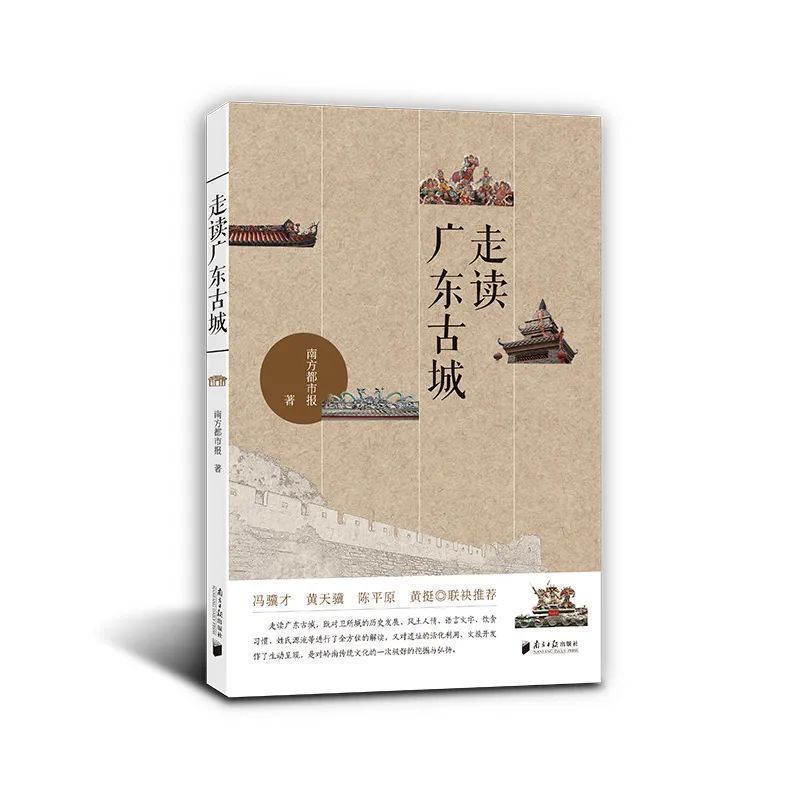
The coastline of Guangdong Province is long, with a wealth of relics of the Ming a...
